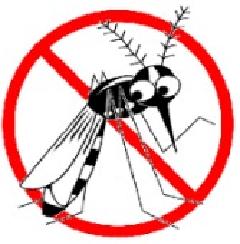Last updated: May 30, 2024
In order to prevent the outbreak of mosquito-borne infectious diseases such as dengue fever, it is necessary for citizens and facility managers to take measures on a daily basis to suppress the breeding of mosquitoes and to prevent mosquito bites.
The most effective way to reduce mosquito populations is to eliminate the mosquito larvae that live in the water (control of larvae).
Since Aedes albopictus mosquitoes have a small range of activity, places where people are often bitten are likely to be near puddles or bushes that are breeding grounds for mosquitoes. Taking appropriate measures against these breeding grounds will help prevent mosquito breeding.
Empty cans, plastic bottles, empty bottles, abandoned lunch containers, water accumulated in old tires - remove unnecessary items and waste.
If you do not remove it, place it face down in a place protected from rain.
Pumped water for watering, puddles in flower pot saucers ⇒ Place the plants upside down to prevent water from accumulating. Remove it if it is no longer needed.
If you store water, change the water frequently (at least once a week).
Cover it with a fine mesh.
Water accumulating in clogged rain gutters and side gutters on private property - Inspect and clean regularly to remove blockages and prevent water from accumulating.
Remove any water that has accumulated in the depressions of the rainscreen sheet and cover it with a rainscreen sheet to prevent any dents from forming.
Hollows in wood or stone ⇒ Fill the hollows with filler such as putty to prevent water from accumulating.
Rainwater basins and drainage basins on private property ⇒ Clean them frequently.
Aedes albopictus lives in the shade of bushes and trees and tends to feed on blood during the day. Therefore, it is effective to take measures to prevent mosquito bites (adult mosquito control) when you are active outdoors during the day.
Prevent mosquitoes from entering.
Eliminate mosquito hiding places.
Preventing bloodsucking

Inagi City Urban Environment Development Department Living Environment Division Phone: 042-378-2111